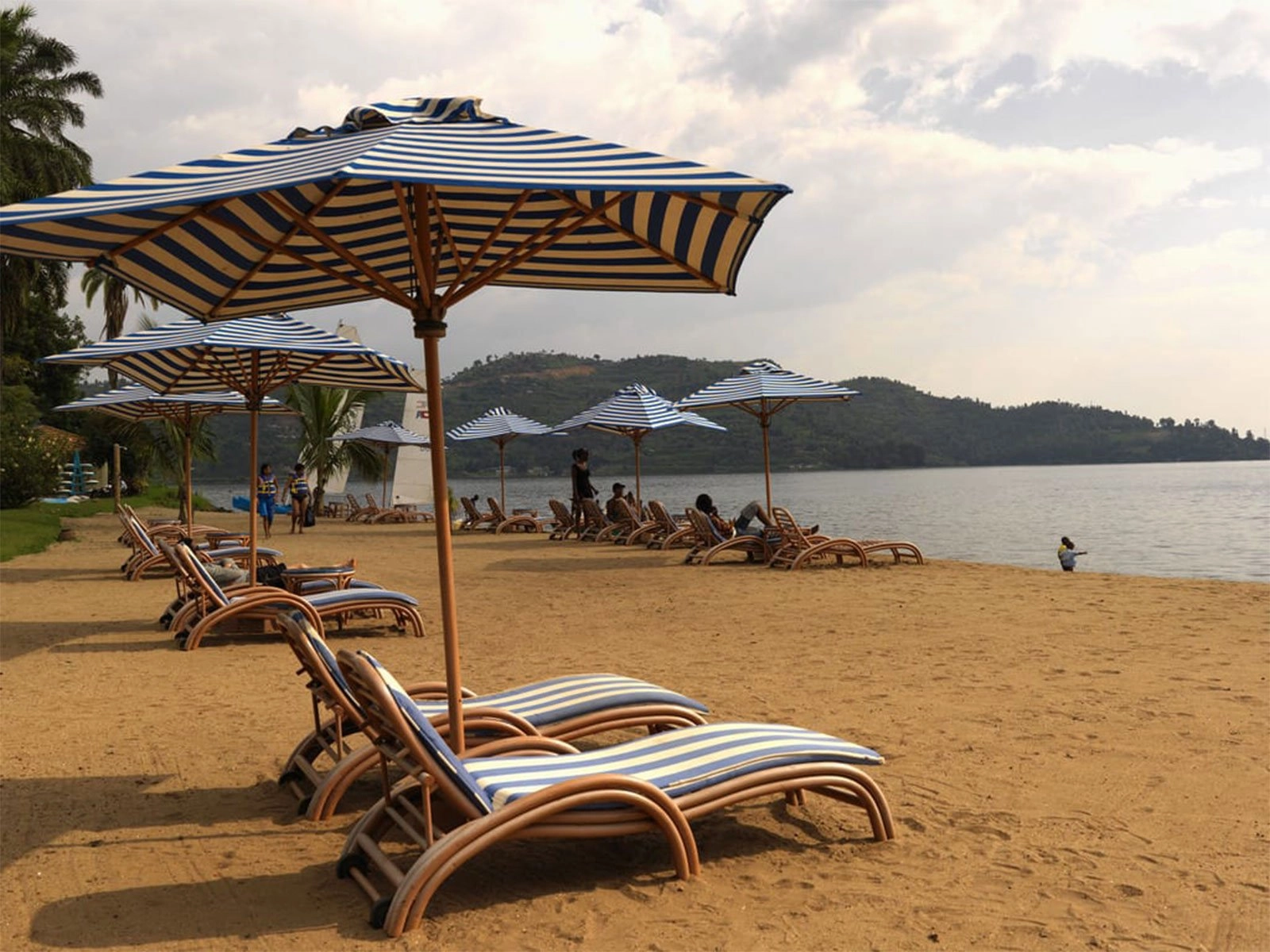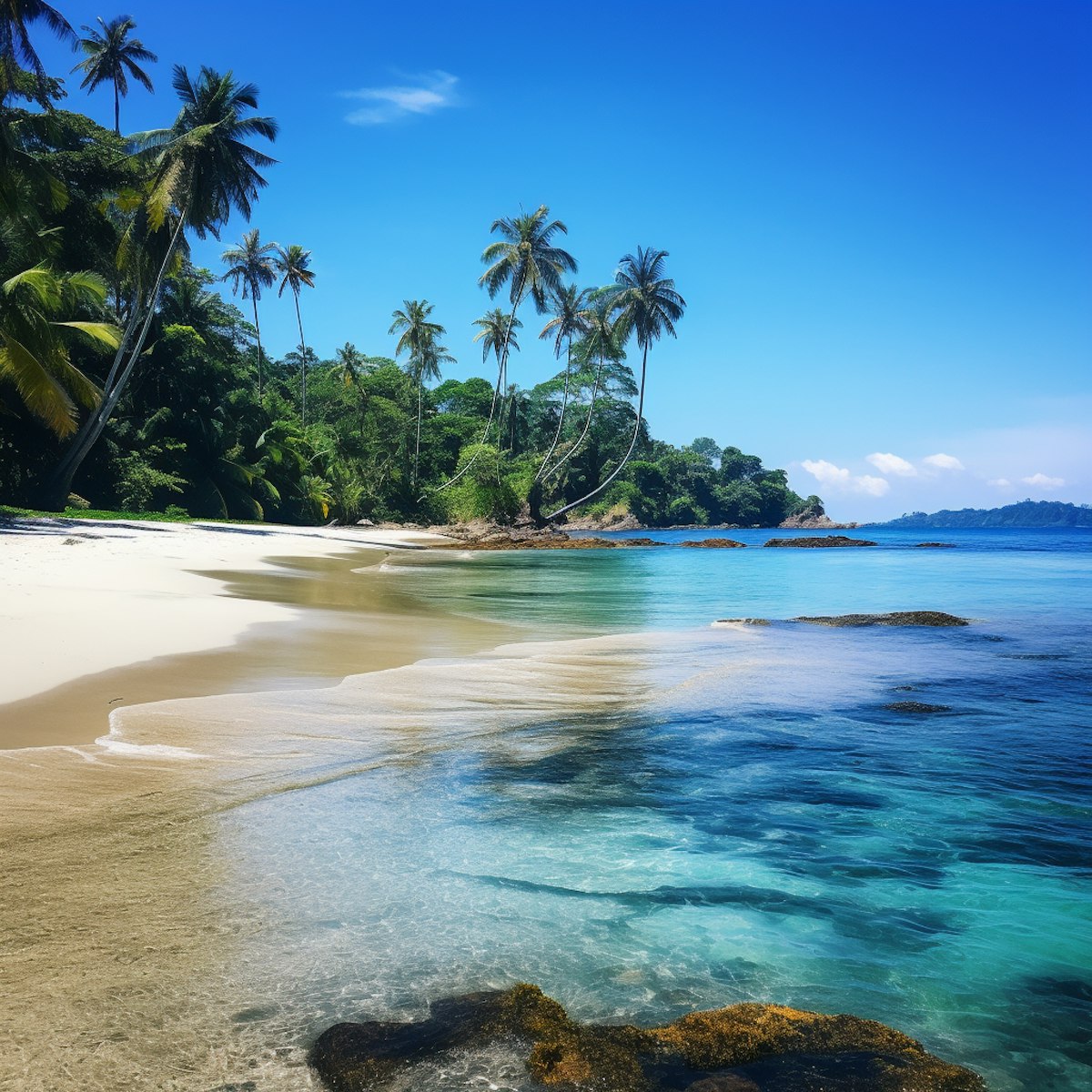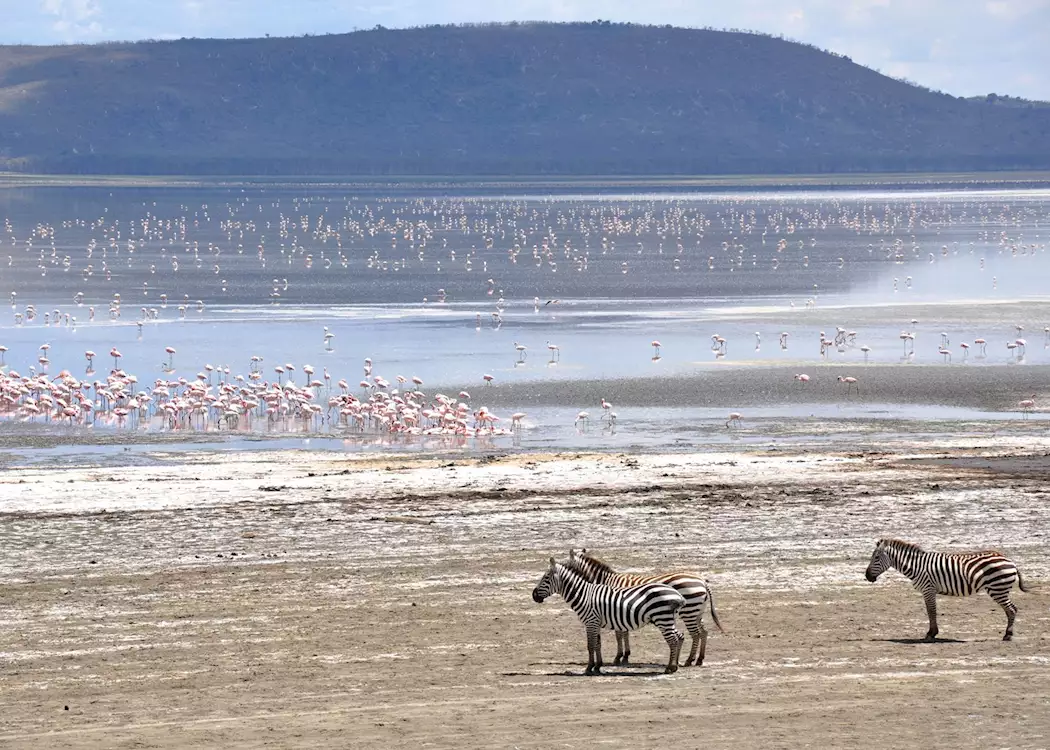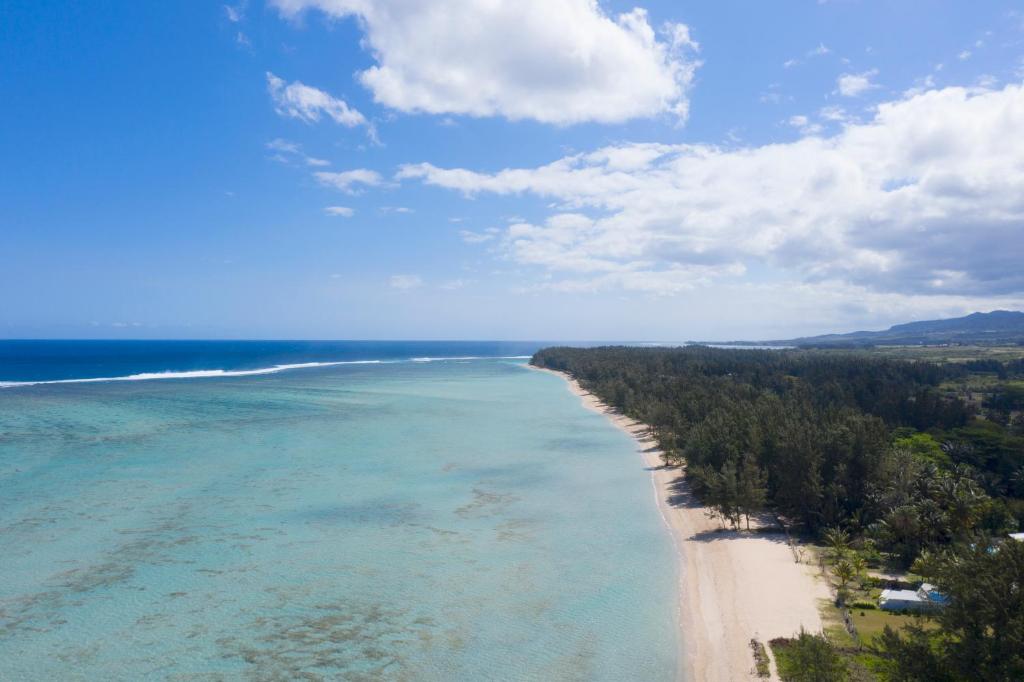"Beach destination? In Rwanda?" The border official at Gatuna looked at my sandals and beach towel sticking out of my backpack with genuine confusion. "You know we have no ocean, yes?"
I knew. What I also knew – and what most travelers miss – is that Rwanda's Lake Kivu offers something better than ocean beaches: 2,700 square kilometers of fresh water surrounded by terraced hills, smoking volcanoes, and some of the most stunning shoreline in Africa. No salt, no sharks, no tsunamis. Just pure, swimmable water at perfect temperature year-round.
After three weeks exploring every accessible inch of Lake Kivu's shoreline, I'm convinced this is Africa's most underrated beach destination. While everyone rushes to see gorillas (worth it) or genocide memorials (important), they're missing Rwanda's inland sea that locals have been enjoying for generations.
Understanding Lake Kivu
Lake Kivu isn't just any lake. It's one of Africa's Great Lakes, sitting at 1,460m elevation in the Albertine Rift. It's also one of only three "exploding lakes" in the world, with deep waters containing massive amounts of dissolved gases. Don't panic – it's perfectly safe for swimming. The gases are trapped 300m down, and locals have been fishing and swimming here forever.
The lake forms Rwanda's western border with DRC, creating a natural divide that's been both blessing and curse throughout history. Today, it's simply stunning – imagine Switzerland with better weather and beaches.
Gisenyi: The Beach Capital
Gisenyi (now officially Rubavu) is where Rwandans go for beach holidays. Just 3 hours from Kigali, it's where the capital empties out on weekends, and for good reason.
The Beach Scene: The main public beach stretches for 3km along the corniche. On weekends it transforms – sound systems appear, volleyball nets go up, and the smell of brochettes fills the air. This isn't a quiet retreat; it's a party.
- **Discover Rwanda Youth Hostel:** $12/night dorm, $25 private
- **Inzu Lodge:** $40/night, backpacker favorite, great bar
- **Paradise Malahide:** $35/night, on the beach
- **Serena Hotel:** $150/night (the splurge option)
- **Morning:** Fishermen bringing in the night's catch
- **Afternoon:** Swimming, volleyball, cold Primus beers
- **Evening:** Beach bars come alive, live music weekends
- **Night:** Bonfires if you know where to look
The Hot Springs: Just 9km north, natural hot springs bubble into the lake. Local motorcycle taxi ($3 each way) gets you there. The contrast of hot springs meeting cool lake water creates perfect natural jacuzzis. Weekday mornings you'll have them to yourself.
Kibuye: The Quiet Alternative
If Gisenyi is the party, Kibuye (Karongi) is the meditation. Halfway down the lake, this small town offers a completely different vibe – think Italian lakes without the crowds or prices.
- Dramatic peninsula setting
- Multiple islands within kayaking distance
- Better swimming (deeper water, fewer people)
- Stunning sunsets (west-facing = perfect)
- **Napoleon Island:** Shape supposedly resembles his hat. Great hiking, resident fruit bats
- **Amahoro Island:** "Peace Island" - includes basic camping
- **Monkey Island:** Self-explanatory. Don't bring food.
Boats to islands: $20-30 for half day, split between group
- **Home St. Jean:** $25/night, legendary guesthouse
- **Cormoran Lodge:** $60/night, worth the splurge
- **Rwiza Village:** $30/night, local-run, profits support community
Cyangugu: The Wild South
Cyangugu (Rusizi) at the lake's southern tip feels like the end of the world – in the best way. Less developed, more authentic, with DRC literally visible across the narrow water.
The Vibe: This isn't resort territory. It's fishing villages, local beaches, and the kind of authenticity that's disappearing elsewhere. The beaches are rockier but emptier. The water is just as clear.
The Border Beach: Where Rwanda meets DRC, there's a beach split by an invisible line. Congolese on one side, Rwandans on the other, everyone swimming in the same water. It's beautifully symbolic.
The Eastern Shore: Off the Beaten Track
Most tourists stick to the three main towns. The eastern shore between them is where the magic happens. I spent a week motorbiking this stretch, discovering beaches that don't appear on any map.
- **Ntango Beach:** 20km south of Gisenyi, completely undeveloped
- **Gihaya Peninsula:** Accessible by dirt road, camping allowed
- **Musanze Bay:** Protected cove, perfect for kayaking
- **Motorcycle rental in Gisenyi:** $25/day (Chinese bikes, negotiate)
- **Mountain bike:** $10/day (slower but doable)
- **Local boats:** Negotiate with fishermen ($10-20 for short trips)
Activities: More Than Just Beaches
Kayaking: Every beach town rents kayaks ($10-15/hour). The water is calm, distances manageable. Sunset paddles are mandatory.
Coffee Island Tours: Lake Kivu's islands grow some of Rwanda's best coffee. Tours from Kibuye visit working plantations. You'll see the whole process, from plant to cup, with the lake as backdrop. $25 including boat and tasting.
Fishing Trips: Join local fishermen for night fishing. Traditional methods, singing to attract fish (supposedly works), and dawn return with your catch. $20-30 for the experience.
Trail Running/Hiking: The Congo Nile Trail runs 227km along the lake. You can do sections as day hikes. The stretch from Gisenyi to Kibuye is particularly stunning.
Stand-Up Paddleboarding: New to the lake but catching on. Rental in Gisenyi and Kibuye ($15/hour). Morning glass-calm conditions are perfect.
The Congo Nile Trail: Epic Lakeside Trekking
This 227km trail connecting Gisenyi to Cyangugu is one of Africa's great walks. You can bike it (5 days), motorbike it (2-3 days), or walk it (10 days).
- Constantly changing lake views
- Tea plantation passages
- Village homestays
- Beach camping opportunities
- Genuine cultural exchange
- **Day 1:** Gisenyi to Kinunu (48km) - brutal hills, worth it
- **Day 2:** Kinunu to Musasa (45km) - tea plantations forever
- **Day 3:** Musasa to Kibuye (38km) - best lake views
- **Day 4:** Kibuye to Mugonero (52km) - quieter, wilder
- **Day 5:** Mugonero to Cyangugu (44km) - triumphant arrival
Cost: Bike rental $50, accommodation $15-25/night, food $10/day
When to Visit: The Climate Advantage
Here's Lake Kivu's secret weapon: perfect weather year-round.
- Guaranteed sun
- Cooler evenings
- More crowds (relatively speaking)
- Higher prices
- Afternoon rains only
- Mornings still perfect
- Empty beaches
- Everything cheaper
- Dramatic storm watching
I visited in November. Daily pattern: perfect mornings, dramatic afternoon storms, clear evenings. The rain hitting the lake while you watch from a beach bar? Magical.
The Food Scene: Lakeside Dining
- **Sambaza** (tiny sardines): Fried crispy, eaten whole
- **Tilapia:** Grilled to perfection
- **Capitaine:** The premium option
Beach Brochettes: Goat skewers on the beach as the sun sets. This is the way. Usually 500 RWF ($0.50) per stick.
- **Gisenyi:** Tam Tam Beach Bar (live music Fridays)
- **Kibuye:** Bethanie Bar (sunset views)
- **Cyangugu:** Emeraude Beach (local scene)
Budget Breakdown
Lake Kivu is refreshingly affordable:
- **Accommodation:** $15-40 (hostel to mid-range)
- **Food:** $5-15 (local to restaurant)
- **Activities:** $10-30
- **Transport:** $5-10
Total: $35-95/day depending on style
- Eat where locals eat
- Share boat trips
- Motorcycle taxis over special hires
- Happy hour is real (5-7 PM most places)
Getting Around
- **Public buses:** Cheap ($3-5), slow, authentic
- **Shared taxis:** Faster, pricier ($10-15)
- **Motorcycle:** Freedom but challenging roads
- **Motorcycle taxis:** Everywhere, cheap, negotiate
- **Bicycles:** Most guesthouses rent them
- **Walking:** Beaches are walkable, towns compact
The Surprising Nightlife
Lake Kivu after dark surprised me. This isn't sleepy lakeside territory.
- **Gisenyi:** Proper clubs, live bands, beach parties
- **Kibuye:** Laid-back bars, occasional live music
- **Cyangugu:** Local spots, authentic vibe
Rwandans know how to party. The lakeside setting just makes it better.
Safety and Practical Stuff
Swimming: Totally safe. No bilharzia, no crocs, no hippos. Just watch for boats.
Sun: Elevation + equator = serious sunburn potential
Language: French helps more than in Kigali. Kinyarwanda effort appreciated.
Border: Don't accidentally swim to Congo
Health: Malaria risk exists but low. Take normal precautions.
Why Lake Kivu Matters
In a landlocked country known for mountains and gorillas, Lake Kivu offers something unexpected – a genuine beach holiday in the heart of Africa. It's where Rwandans relax, where the pace slows, where the beauty is understated rather than dramatic.
But beyond the beaches and perfect weather, Lake Kivu represents something bigger. In a region marked by conflict, this lake forms a peaceful border. In a country racing toward development, these shores maintain a slower rhythm. In a world of overtouristed destinations, Kivu remains refreshingly authentic.
The Perfect Lake Kivu Week
Day 1-2: Gisenyi - get your beach fix, party a little Day 3-4: Bike/boat to Kibuye - island hop, kayak Day 5: Explore eastern shore - find your private beach Day 6-7: Cyangugu - authentic vibes, reflect on the journey
The Verdict
That border official was right – Rwanda has no ocean. What it has instead might be better. Lake Kivu offers all the beach holiday essentials (sun, sand, swimming) without the ocean's downsides (salt, currents, crowds).
I came for a weekend. I stayed for three weeks. I'll be back. Because once you've watched sunrise paint volcanoes pink while you swim in perfect-temperature water, once you've shared beach brochettes with locals who've never seen tourists, once you've discovered your own private cove accessible only by kayak – well, the ocean seems overrated.
Lake Kivu isn't just Africa's best-kept secret beach destination. It's a reminder that the best travel experiences come from looking where others don't. While everyone else fights for space on ocean beaches, you could have an African Great Lake mostly to yourself.
The water's perfect. The beaches are empty. The beer is cold. What are you waiting for?



